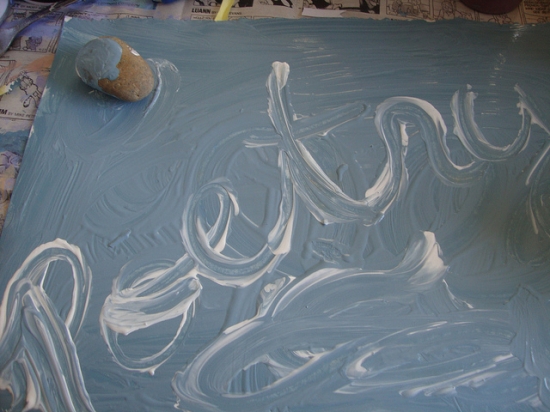
Photo Credit: http://www.flickr.com/photos/juliejordanscott/4586839767/
Israeli Women Poets: Woman’s voice in the private domain and public discourse
Writing as a woman, the major obstacle is the inclination to edit out some topics, opinions, attitudes, words because you’ve been programmed to be a nice girl. This is particularly true in Israeli society, which is historically, religiously and politically male-oriented (in the words of a popular local song: ‘a little country with a moustache’). However, I avoid taking the militant stance that invariably damages art and becomes politics. Woman’s Poetry, or Jewish Poetry, or Homosexual Poetry, are librarians’ terms. Anyway, I’ve never heard of a classification under the heading of Men’s Poetry, Men’s Painting, etc. That’s taken for granted.
In woman’s poetry in Israel, the man is rarely addressed, as if empowerment is more surely attainable by speaking softly woman to woman than by confrontation with him.
Writing in a minority language, that is, a language other than the mainstream language (as I do) produces a complex situation that influences meaning itself and the way in which words convey meaning. By this definition, women’s writing in relation to male dominated literature is minority writing: locality and culture affect the meaning and impact of words. A reader from one culture will draw different meaning from the words of a writer from another culture, even in the best translations. So, too, with the female sub-culture: the words simply do not mean the same. A male reader’s associations are different, because his locale, his culture – side by side with women’s – has different emphasis and nuance and relevance.
Thus, a few lines about looking into a mirror erase the boundary between the personal and political. A frightening personal memory from childhood becomes a commentary on terrorism as well as a rebuke to men who demand that women be the ones to adapt.
Layer upon layer, as if stuck between the pages of an unimaginable photograph album, the Holocaust is fixed in the reality of life in Israel. It is like a sepia photograph of a laughing family not many years before its members were herded like cattle into the box cars. Small everyday details suddenly trigger those demonic memories.
Our wars are present in our woman’s poetry more often as lamentations over the destruction and upheaval of lives than as celebrations of political power. However, in a rare example of woman’s poetry in the Bible, Deborah exhorts herself to sing “Awake! Awake Deborah; Awake and utter a song!” and the song she sings is a triumphant war song. Also in the Bible we read that Moses’ sister Miriam danced and sang on the shores of the Red Sea, celebrating the victory over Pharaoh's chariots: “Horse and rider He flung into the sea”, she sang. But all she got in return for her performance was a small quote in her brother’s song.
A sense of place is typical of Israeli poetry in general, as if the love affair between the people and the country is ever renewing itself, although the marriage is shaky. In local woman’s poetry, the recurrent nature/place metaphor reveals an underlying, if muted, awareness of personal worth, but this celebrated perception of her worth sinks under the weight of a different role when the same poet takes the mood home. The existential danger, the devastating sights, the lurking sadness and loss are bound to our politics and history. Yet, the personal must intervene, we must dress for the day, whatever it brings.
The pleasure of waking up in the morning to sounds from the garden and the safely awakening family is not universally given; neither in Israel nor in many other countries. It is a fragile pleasure that can vanish in a blast. The dream remains, but so do the existential wistfulness and fatigue.
This is who we are. We try, as women and poets do, to find clarity and order. We rebuke and grieve, celebrate and sigh and hope for the best – or kick the door open.
Abbreviated text of lecture to visiting American Progressive Judaism Women's Group, Tel Aviv, 2008.
Biographical Note: Riva Rubin
Born in South Africa, has lived in Israel since 1963; holder of prestigious literary awards, including President of Israel Prize for Literature (1999). Writer of poetry, short fiction, articles, reviews of literature and art; literary and academic translator from Hebrew to English; editor; teacher. Published: Three collections of her poetry in English; three collections of her poetry translated to Hebrew by leading Israeli translators; poems and short stories in Israeli and international anthologies. Founding member and past chairperson of the Israel Association of Writers in English, past executive secretary of Israeli PEN Centre.
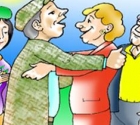 The Bereavement & Loss Program
The Bereavement & Loss Program Thank You Eddie
Thank You Eddie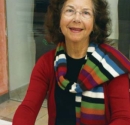 Save One Life, Save A World
Save One Life, Save A World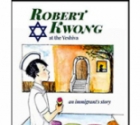 Robert Kwong at the Yeshiva
Robert Kwong at the Yeshiva  Friday Night with the Pope - A Book Review
Friday Night with the Pope - A Book Review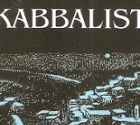 The Kabbalist - A Book Review
The Kabbalist - A Book Review 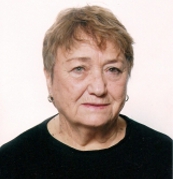 Riva Rubin
Riva Rubin